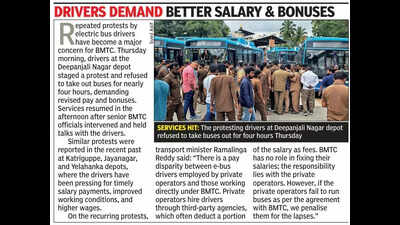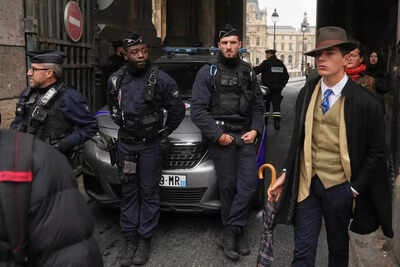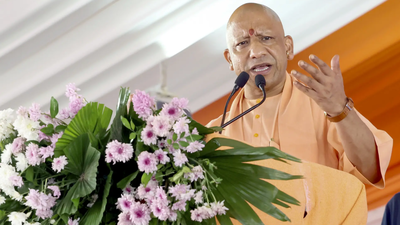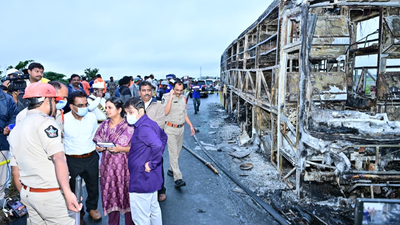13k cases in 2.5 years: E-bus breakdowns hit green mobility in Bengaluru | Bengaluru News

Bengaluru: Over 13,000 breakdowns involving electric buses have been reported in the last two and a half years, posing a major challenge for BMTC in its efforts to promote green mobility and sustainable public transport.Since Dec 2021, BMTC has introduced nearly 1,700 electric buses through private operators, accounting for around 25% of the corporation’s total bus fleet. The initiative has, however, been hampered by frequent breakdowns, accidents, and complaints of rash driving.Transport minister Ramalinga Reddy said, “Over the past two and a half years, more than 13,000 electric bus breakdowns have been reported, which remains a major concern. Battery-related issues, in particular, take longer to resolve, disrupting traffic flow on the roads.”A senior police officer said that in Sept alone, 281 bus breakdowns were reported, with the majority involving electric buses. “When an electric bus breaks down on main roads, it is not as easy to move it aside as a diesel bus,” the officer said. “To address this, BMTC has deployed wreckers dedicated to towing electric buses. Four such wreckers have been stationed at strategic locations. A system has been put in place to contact depot managers for quick response for removal of the vehicle when it breaks down,” the official said.The officer also raised concerns over drivers employed by private operators. “Unlike those directly employed by BMTC, many drivers hired through private contractors lack the necessary skills in road safety and professional conduct. There have been numerous instances of drivers abandoning buses over minor issues. Regular BMTC employees fear disciplinary action, but drivers employed by private operators often do not show the same level of responsibility— if they lose a job, they can simply seek another the next day,” the officer added.Recently, after an electric bus broke down on Outer Ring Road, the traffic jam stretched for several kilometres, testing the patience of motorists travelling towards Marathahalli, Kadubeesanahalli, Bellandur, and other areas.The minister said that such challenges are not unique to Bengaluru, as other cities operating electric buses through private contractors face similar issues.“As per the central govt’s policy, subsidies are provided directly to private operators for the supply, operation and maintenance of these buses. BMTC pays operational costs to the private operators on a per-kilometre basis. Private operators have to employ drivers and maintain the vehicles. We only provide conductors for issuing tickets for the passengers.” The minister said that apart from frequent breakdowns, incidents of rash driving and recurring accidents involving electric buses remain a concern.Compounding the problem, repeated protests by electric bus drivers have disrupted city bus services last week. The drivers employed by private contractors have been demanding better pay, bonuses, and insurance coverage. BMTC officials, however, maintain that the corporation has no say in the salary of e-bus drivers and service conditions, as these drivers are not directly on its payroll.—-Drivers protest at Deepanjali Nagar depotRepeated protests by electric bus drivers have become a major concern for BMTC. Thursday morning, drivers at the Deepanjali Nagar depot staged a protest and refused to take out buses for nearly four hours, demanding better pay and bonuses. Services resumed in the afternoon after senior BMTC officials intervened and held talks with the drivers.Similar protests were reported in the recent past at Katriguppe, Jayanagar, and Yelahanka depots, where drivers have been pressing for timely salary payments, improved working conditions, and higher wages.On the recurring protests, transport minister Ramalinga Reddy said, “There is a pay disparity between e-bus drivers employed by private operators and those working directly under BMTC. Private operators hire drivers through third-party agencies, which often deduct a portion of the salary as fees. BMTC has no role in fixing their salaries; the responsibility lies with the private operators. However, if the private operators fail to run buses as per the agreement with BMTC, we penalise them for the lapses.“






